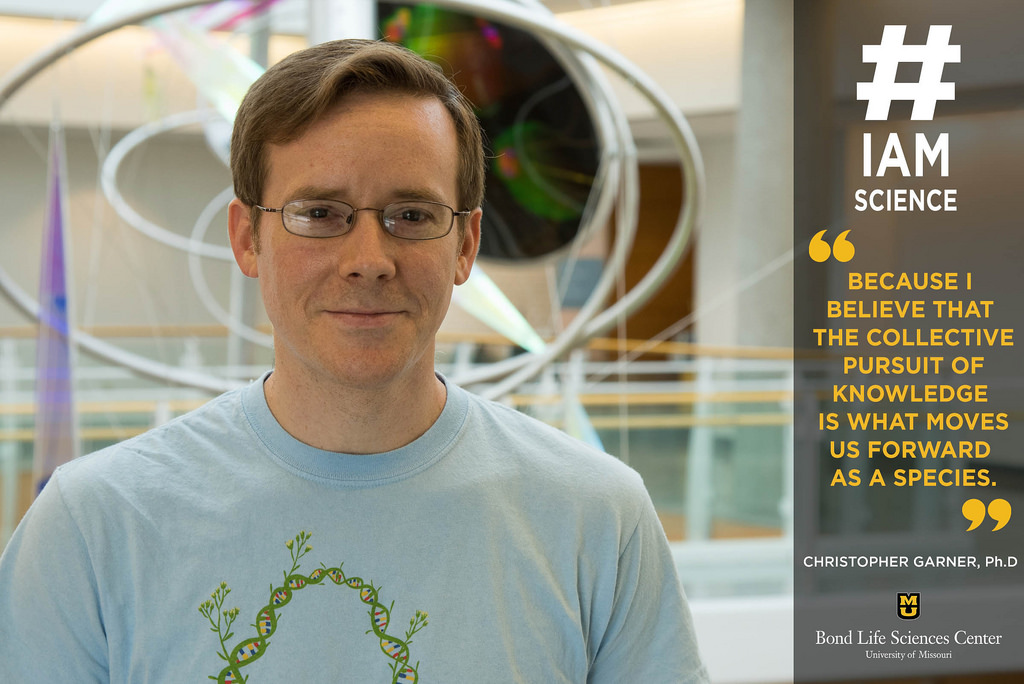Published on

Christopher Garner, Ph.D moments before his successful dissertation defense. | Photo by Mary Jane Rogers, Bond LSC
By Mary Jane Rogers | Bond LSC
“#IAmScience because I believe that the collective pursuit of scientific knowledge is what moves us forward as a species.”
In the time leading up to Christopher Garner’s dissertation defense, you never would have known if he was nervous. He was confident and composed, and the conference room at Bond LSC was completely filled with his professors, friends and well-wishers. Dr. Walter Gassmann gave a complimentary introduction to the dissertation, saying, “I don’t know if I’ve ever seen a student so prepared.” Needless to say, Garner passed with flying colors.
Garner completed his undergraduate degree at the University of Missouri, St. Louis. After graduating, he went to work on a small R & D team at a St. Louis company. That was his first experience with research and his mentor was influential in persuading Garner to go to graduate school. During graduate school at MU, Garner worked in Gassmann’s lab at Bond LSC, researching the inner workings of the plant immune system. His favorite part of working in the lab was constantly conducting new experiments.
“It’s really satisfying to make a prediction and then see it come true,” said Garner. “It can be equally exciting to see things are radically different than what you predicted.”
His dissertation – “Should I slay or should I grow? Transcriptional repression in the plant innate immune system” – focused on the tradeoffs between growth and defense that plants face when mounting an immune response. While the immune response is essential for the survival of plants in the face of pathogen infection, expression of defense-related genes can interfere with growth and development and must therefore be kept under tight control. His research identified a protein involved in preventing an overshoot of the immune system after it has been activated, thereby contributing new information to the field.
“If there is some way in which I can contribute to the pursuit of scientific knowledge, be it through research or teaching others about science, then I feel like I have done something worthwhile,” said Garner.
Congratulations on a successful defense, Chris!